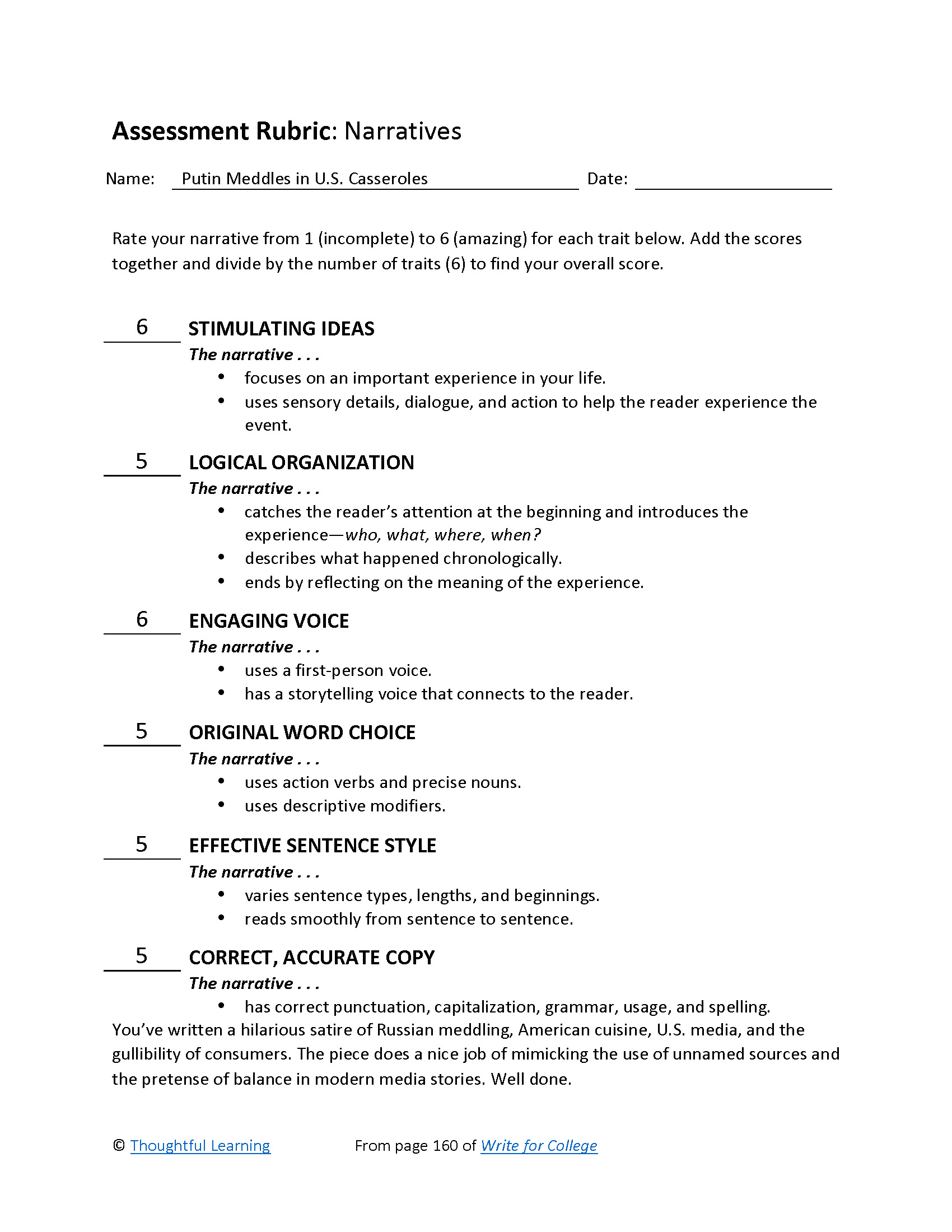Student Model
Putin Meddles in U.S. Casseroles
Intelligence officials revealed Wednesday that Russian President Vladimir Putin's meddling fingers reached past American ballot boxes and into their kitchens. Several sources who spoke on condition of anonymity because they were not authorized to share sensitive intelligence indicated that Russia has tampered with favorite recipes, resulting in unpalatable dishes.
"I've always trusted my Pinterest recipes," said Norma Jensen, a recent victim of Russian meddling, "so when it said my pork and noodle casserole needed a gallon of cream of mushroom soup, I just went with it. That was embarrassing. It was more like soup than casserole."
Officials indicate that recipes involving cream of mushroom soup were common Russian targets because they were "all American." Cooks should also carefully cross-check quantities in recipes involving American cheese, hot dogs, fried chicken, applesauce, and Twinkies.
"The recipe told my wife to put cocktail weenies in my chocolate birthday cake," reported Terrance Wetterland of Iowa. "That's just mean."
Intelligence agencies have known about these incursions for months but couldn't track down their source. Then came the menu debacle of the Festiva Fiesta restaurant in Palo Alto. They had to reprint 500 menus when they discovered that a hacker added "gringo" to "beef" and "chicken" as meats available for tacos. On the same menu, "gazpacho" had been changed to "borscht."
"That was our first big lead," said an investigator involved in the case. "That kind of soup is very Russian."
The Russians also reportedly launched a Cold War-style assault on that most American of food holidays, Thanksgiving. The packaging on 10,000 frozen turkeys had been modified to advise baking at 166 degrees for five days. "The minimum safe internal temperature for a turkey is 165 degrees," pointed out television chef Marty Gooseberry. "So, yes, technically in five days, a turkey cooked at that temperature would be safe to eat, but it would be pretty dry."
The hacking took an even more serious turn when Russian-sponsored recipe sites began presenting inedible objects as American appetizers, including paper weights, pet rocks, Slinkies, and Tide pods.
"It's not funny when it happens to you," said Claire McDaniels, 32, of Munster, Indiana. "That pet rock was a family heirloom."
One daring hacker inserted "1 can Sean Bean, drained" into every online recipe of "Three Bean Salad." Sean Bean is not a canned legume but rather the actor who played Boromir in the Lord of the Rings films. This meddling has seriously impacted the efficiency of American grocery store stockers, who have wasted many hours searching shelves for cans of Sean Bean. A known Russian troll mocked the situation on Twitter, pointing out that if Americans had better math test scores, they would realize "they were trying to make Four Bean Salad."
Churches across the country have had to cancel potluck dinners.
"So far, they don't seem to be trying to create outright danger, but just to sow discord," said one investigator familiar with many cases.
One such case involves the social media war over pineapples on pizza. According to a data analyst, up to 30 percent of social posts about pineapple on pizza come from Russian bots. "They play both sides. They know what divides us. They know Americans who dislike pineapple on pizza could be turned into Americans who dislike Americans who like pineapple on pizza. That's how Putin works."
More pernicious, still, is Russian amping up of American love of bacon. "They really have been churning out the bacon memes," reported a hacker with Anonymous, who spoke on condition of anonymity. "They know heart disease is a huge killer in this country, and they know we are struggling with health care, and they know we love bacon. It's calculated. It's cruel."
While many citizens are calling for action from Washington, lawmakers are urging restraint. One freshman senator who spoke off the record said, "They don't realize that Russians have always meddled with American cuisine. How else would we have ended up with pork rinds?"
Some pundits see a class division here. While 99 percent of Americans regularly eat food they prepare, the top 1 percent eat only chef-prepared dishes. Most chefs know that Sean Bean is not a legume. And as long as the Russians have failed to penetrate the firewalls at McDonalds, the chief executive's food supply remains safe.
"It's frustrating," says Stacy Williamson, who teaches Family and Consumer Sciences at a Wisconsin high school. "I teach the kids how to create a great slow-cooker chili, and then they Google a recipe on their phones and ask why I don't add ground gringo."
Josh Whitson, head of the FreeThink Project, suggests a proactive strategy: "American schools should teach critical thinking. People should be able to figure out that they don't make curly fries using a curling iron."
However, lawmakers seem more bent on retaliatory strikes. "If they want a Food War, they'll get one," said the same junior senator. "We've spread fast-food places across the globe. You think burgers are bad now? Just wait. The Russians will have heartburn like the world has never seen."

Rubric


Putin Meddles in U.S. Casseroles by Thoughtful Learning is licensed under a Creative Commons Attribution-NonCommercial-ShareAlike 4.0 International License.
Based on a work at k12.thoughtfullearning.com/assessmentmodels/putin-meddles-us-casseroles.